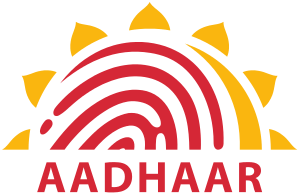The journey of the Aadhaar scheme can be traced back from its inception in 2006, following which it has undergone scrutiny by way of two Bills that aimed to provide it statutory backing, one Parliamentary StandingCommittee evaluation, and multiple challenges in the Supreme Court. With respect to the petitions pending in the Supreme Court that challenge the scheme on various grounds, the latest order by the Apex Court on 15th October, 2015 had held the following three things:
-
the use of Aadhaar will be purely voluntary
-
no one will be denied any service for the lack of an Aadhaar card
-
pending decision by the Supreme court on the legality of this scheme, Aadhaar can only be used (on a voluntary basis) for dispersal of benefits and subsidies under PDS, LPG, MNREGA, PM Jan Dhan Yojna, National Social Assistance Program, and Employees’ Providend Fund Organization. (A copy of the order can be accessed here)
While these petitions, tagged together under K.S. Puttaswamy & Ors. v. Union Of India & Ors. (W.P.(C) 494/2012) are awaiting final judgment by the Supreme Court, the Aadhaar scheme received statutory backing in March 2016 as the Aadhaar (Targeted Delivery of Financial & Other Subsidies, Benefits & Services) Bill was passed as a money bill in the budget session of the Parliament. This Act permits the state and central governments to make the Aadhaar card mandatory for availing certain government schemes and benefits under Section 7; and Section 8 enumerates the procedure to be followed by entities collecting the biometric and other information before and while collecting this data from the individual. Although, this Act has received the President’s assent, only a part of it was notified by the central government on 13th July, 2016. This part pertains to provisions on the establishment of Authority; the roles and responsibilities of the Chairman and other members; the powers of central government to issue directions in policy related matters, make rules and regulations for the various processes of the scheme;the use of Aadhaar number by private entities and others to establish identity of an individual, among other things. However, in absence of the entire Act being notified, these provisions are the only ones that are legally enforceable under the Act.
At present, there are two parallel frameworks that are being used for determining the legality and applicability of Aadhaar; one, the Supreme Court order dated 15th October, 2015 that restricts its voluntary use to six government schemes, and condemns making in mandatory for receiving any benefit or service; second, the provisions under the Aadhaar Act, 2016. With both of them having their separate place, and according separate operational status to this scheme, there have been questions regarding the instruction that should take precedence and be followed in the interim of the pending Supreme Court cases, and the Aadhaar Act being notified. Currently, the operative portion of the Act, Section 7, that enables central and state governments to make it mandatory for availing services and benefits, has not yet been notified by the central government. Even if Section 7 were to be notified, the aforementioned Supreme Court order would have cast the mandatory status of Aadhaar in doubt. However, in light of the lack of legal enforceability of this section, it may be definitively inferred that the Apex Court’s order that makes the use of Aadhaar voluntary, and limits its scope to the six mentioned schemes should be the law of the land.
Having established that, it is interesting to note that there have been an excessively large number of violations of this Supreme Court order. Multiple state governments and departments made it mandatory to have an Aadhaar card for availing benefits and services like LPG. Moreover, the use of this scheme was not limited to the six government schemes as laid down by the Supreme Court and has been used, and even made mandatory at times for a wide and diverse range of purposes extending from scholarships, banking, registration of fishing boats, filing income tax returns, conducting ultrasounds, to name a few. Incidentally, recently in the monsoon session of the Parliament, the Rajya Sabha witnessed a disruption and subsequent adjournments during the day on 28th July, 2016 over orders being given by various the state governments making Aadhaar mandatory for availing benefits like PDS, and LPG. However, the Union Minister for Urban Development,Housing and Urban Poverty Alleviation and Parliamentary Affairs, Venkaiah Naidu reassured the Members of the Upper House that Aadhaar is not mandatory and directions will be issued if necessary to clarify it.
To corroborate the claim made by many in the Rajya Sabha, we undertook the exercise of compiling the reported incidents where the Supreme Court orders dated 11th August and 15th October, 2015 were violated by the governments and private entities.


